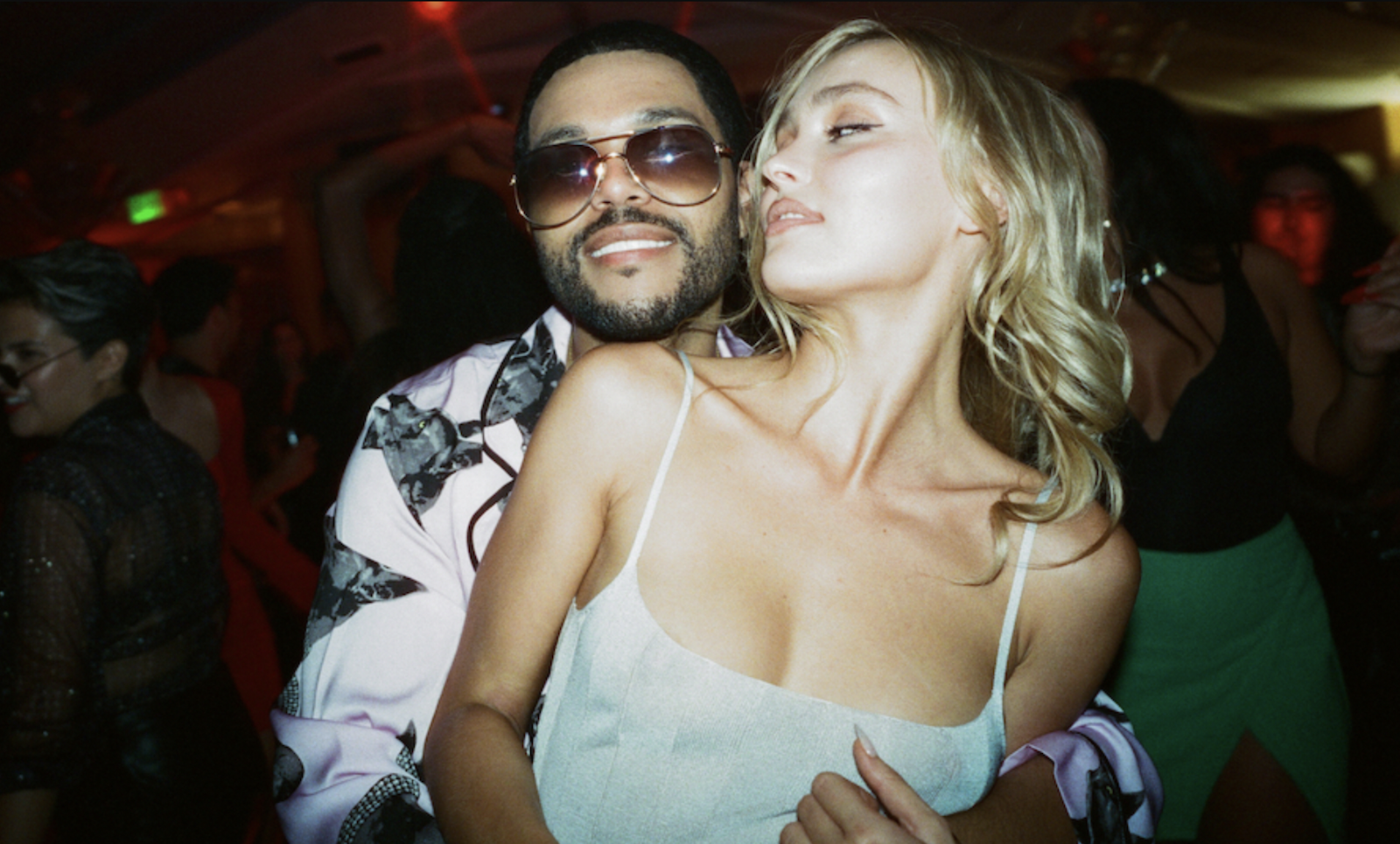The thing to understand about Sam Levinson is that he is a hack. He doesn't have ideas, but rather aesthetic preferences, obvious reference points, and industry grievances that he wants to pass off as ideas. Watching his movies and TV shows feels a lot like scrolling through Tumblr in 2012, and he seems to believe that being transgressive means making Twitter mad at him. He gives the impression of a person who read Easy Riders, Raging Bulls once and built an entire persona based on it. I get the sense he wants me to believe that he's here to put sex, drugs, and rock and roll back into popular entertainment, but to paraphrase a character from the pilot of his latest series, The Idol, which premiered on Max last night: I don't believe you.
The Idol, co-created by Levinson, Reza Fahim, and Abel "The Weeknd" Tesfaye—a different sort of hack—ostensibly follows the trials and tribulations of a pop star named Jocelyn (Lily-Rose Depp) and the machine behind her as it gears up for her comeback album following a psychiatric episode that's alluded to have followed the death of her mother. Jocelyn is a Britney Spears-type that we are made to believe was once successful despite being named Jocelyn. The show starts with her on the downslope of her career, in dire need of a hit record.
While navigating her release schedule, Jocelyn meets Tedros (Tesfaye), a skeevy nightclub owner who worms his way into her life and presumably takes it over (I've only seen the one episode). The series was originally put in the hands of Amy Seimetz, who was unceremoniously fired after filming something like 80 percent of the scenes. Her version of the show supposedly followed a pop star fighting to overcome a predatory cult guru and the music business in an effort to reclaim her agency. I don't know if she would've made a better show, but, based on my impressions of the pilot, it might've been more interesting.
Much of this first episode is spent parodying the pop music business, like a much worse version of Popstar: Never Stop Never Stopping. The episode brims with handlers, managers, PR professionals, and creative directors. The show practically points at these characters and yells, Look how silly they are! They say "quirky" things like "mental illness is sexy!" These smaller parts are filled with lots of overqualified actors, like Hank Azaria, Eli Roth, Dan Levy, Jane Adams, and Rachel Sennott, presumably all there to imbue a flat, typical script with actual personality.
A large portion of the comedy of the first episode centers around an intimacy coordinator at a photoshoot for the album, who takes issue with Jocelyn exposing her breasts in front of the camera, because the protocol in place requires that they make an explicit contract rider showing that Jocelyn consents to having her breasts out for her album cover/booklet. It's an eyeroll-inducing way for Levinson to make fun of the concept of intimacy coordinators and Hollywood's clumsy attempts at creating a new infrastructure of safety on sets. There's plenty to make fun of about these on-the-fly attempts to correct the many ways the industry has abused its workers, but Levinson has no real thoughts or insights beyond Isn't this so silly? and Why can't a beautiful woman get naked on set whenever she wants to? Naturally, Levinson really, really wants it clear that this character totally wants to get naked.
It's a scene that neatly captures the biggest failure with Levinson's whole project of supposedly erotic media, which his other show, Euphoria, also fits into. Levinson is always eager to show us sex and nudity, but never in the service of eroticism for its own sake. Instead, we just get a series of provocations, each one aimed at the various intimacy coordinators that Levinson seems to think fill up his audience.
At one point, Jocelyn and her assistant/friend Leia (Sennott) watch Basic Instinct, a not-so-subtle attempt to place The Idol within the film's lineage. But the thing about Basic Instinct is that it's pretty hot; sex oozes from every line of dialogue, every look, every cigarette puff, and naturally, every thrust. It's because of this genuine commitment to eroticism that, when the movie shocks and goes too far, it actually resonates.
Levinson is a classic millennial artist in the vein of many nepo-auteurs, in that he wants it both ways. He wants to be seen as an avant-garde, controversial artist who is shocking the sensibilities of a "faux-progressive" America, but he can't be so shocking or adventurous that funding for his next project is put into question. In the end, he settles for feeding his ego by making people on social media mad. Meanwhile, audiences are left with these generic versions of better art made by David Lynch or Brian DePalma.
As someone who misses sex and eroticism in film, stuff like The Idol depresses me more than today's completely sexless blockbusters. No one involved in this show seems very interested in sex beyond as a way to provoke viewers. The sex scenes in the first episode are vanilla, and as usual Levinson seems more invested in the technical process than what's happening onscreen. We get plenty of his signature slow motion and neon lighting, but even that stuff isn't very good here. Following two seasons of a popular television series and multiple movies, he's still clearly aping Scorsese, Lynch, and Fincher in obvious ways. Nothing happening here is as adventurous, dangerous, or even gloriously terrible as all the behind-the-scenes coverage would lead you to believe, and that's the most disappointing part of all. All you have here is another boring prestige drama.






